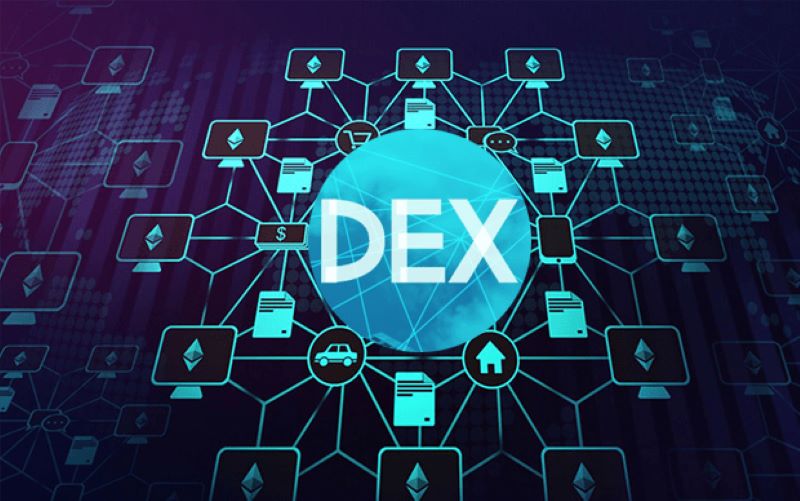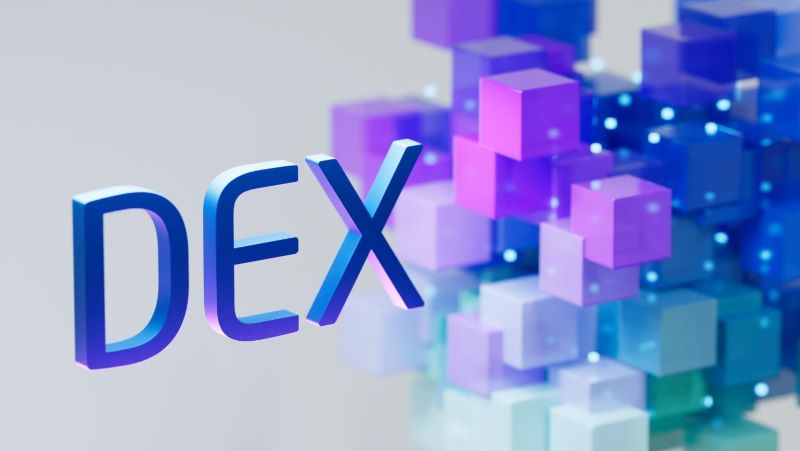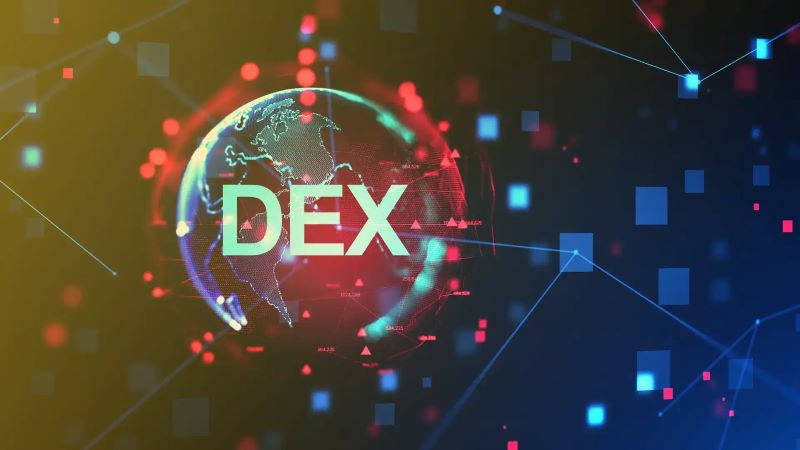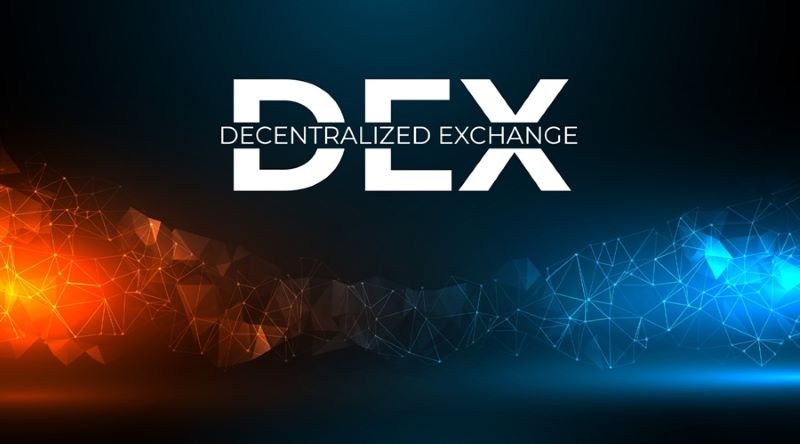What is a decentralized exchange? In the rapidly evolving world of cryptocurrency and blockchain technology, decentralized exchanges (DEXs) have emerged as a revolutionary alternative to traditional centralized exchanges. These platforms enable users to trade cryptocurrencies directly with one another, eliminating the need for intermediaries and allowing for greater control over their assets. By understanding the fundamentals of decentralized exchanges, investors can navigate this innovative landscape and capitalize on the advantages they offer.
What is a decentralized exchange?
A decentralized exchange (DEX) is a cryptocurrency trading platform that allows users to conduct transactions directly with each other without the need for a centralized intermediary such as a centralized exchange (CEX). This means users maintain complete control over their assets and don’t need to trust a third-party organization or individual to manage their funds.

What is a decentralized exchange offers several key features:
- Asset ownership: On DEXs, users can store and manage their assets directly in their personal wallets without depositing funds into an exchange. This reduces the risk of losing funds due to hacks or mismanagement by centralized platforms.
- Transparency: Transactions on DEXs are typically recorded on a blockchain, ensuring transparency and auditability for users. All transactions can be publicly verified and tracked.
- Accessibility: Decentralized exchanges do not require users to create accounts or provide personal information, expanding access to those who may not have access to traditional financial services.
- Trading capabilities: Users can trade a wide variety of cryptocurrencies without the need for a centralized intermediary, enabling faster and more flexible trading.
By understanding what a decentralized exchange is and its benefits, users can make more informed decisions about how they manage their digital assets.
Advantages of Decentralized Exchanges
Decentralized exchanges not only offer higher security and flexibility for users but also create a favorable environment for innovation and development in the cryptocurrency industry. These advantages have made DEXs an indispensable part of the decentralized finance (DeFi) ecosystem.

Enhanced Security
- No Need for Personal Information: Users don’t need to register or provide personal information to trade on DEXs, reducing the risk of data breaches and protecting privacy.
- Asset Security: DEXs allow users to store their assets in personal wallets instead of on centralized platforms, minimizing the risk of hacks.
24/7 Trading
- Uninterrupted Service: DEXs operate 24/7, allowing users to trade anytime without being limited by trading hours or system issues as on centralized exchanges.
Continuous Innovation
- Experimentation and Development: DEXs often allow developers to experiment with new strategies and technologies without being constrained by strict regulations, driving innovation in the cryptocurrency industry.
Lower Transaction Fees
- Reduced Fees: In many cases, transaction fees on DEXs are lower than on centralized exchanges due to the lack of complex infrastructure management.
- No Hidden Fees: Users can clearly see all fees before executing a trade, allowing them to better manage their costs.
Trading Flexibility
- Trading Unlisted Tokens: DEXs allow users to trade new and unlisted tokens that may not be available on centralized exchanges. This expands investment opportunities for users.
- Quick Decision Making: Users can execute trades quickly without waiting for third-party approval.
Community and Decentralized Governance
- Community Involvement: Many DEXs are governed by the community through governance decisions, allowing users to participate in the development and management of the platform.
- Participation in New Projects: Users can easily participate in new projects and tokens through liquidity pools without needing approval from anyone.
What is a decentralized exchange? It’s a platform that offers a more secure, flexible, and transparent way to trade cryptocurrencies. By understanding the advantages of DEXs, users can make more informed decisions about how they manage their digital assets.
Drawbacks of Decentralized Exchanges
While decentralized exchanges offer many benefits to users, there are also some drawbacks to consider. These factors can impact the trading experience and influence users’ decisions when choosing between DEXs and centralized exchanges.

Lack of Liquidity
Low Trading Volume: Many DEXs may have low liquidity, especially for less popular tokens, making it difficult for users to execute large trades without significantly impacting the price.
Difficulty of Use
- Complex User Interface: Some DEXs may have complex and unfriendly user interfaces, making them difficult for new users to access and use.
- Technical Knowledge Required: Users need knowledge of cryptocurrency wallets, cryptography, and blockchain usage to conduct transactions, which can reduce the number of users participating.
Technical Risks and Errors
- Smart Contract Bugs: DEXs often rely on smart contracts to execute transactions, and if there are bugs in the code, it can lead to asset loss.
- Performance Issues: When there are too many simultaneous transactions, DEX performance may be affected, leading to longer transaction times or even transaction failures.
Limited Asset Support
- Not All Tokens Supported: Not all tokens are available on DEXs, which can limit trading opportunities for users compared to centralized exchanges.
Lack of Clear Regulations
- Legal Risks: DEXs are still not clearly regulated in many countries, which can create legal risks for users.
- Lack of Consumer Protection: Users may find it difficult to file complaints or recover assets if something goes wrong, as DEXs don’t have customer support mechanisms like centralized exchanges.
Slow Adoption of New Features
- Limited Features: Many DEXs have yet to offer advanced features such as margin trading, leveraged trading, or advanced analytical tools, which can limit users’ trading capabilities.
What is a decentralized exchange? While they offer numerous advantages, it’s important to be aware of their limitations. Understanding the drawbacks of DEXs can help users make informed decisions about which trading platform is best suited for their needs.
The Future of Decentralized Exchanges
Decentralized exchanges (DEXs) have become an integral part of the decentralized finance (DeFi) ecosystem. The future of DEXs will depend on several key factors:
Advancements in Blockchain Technology
- Improved Performance: The development of new blockchains and scaling solutions like Layer 2 can help improve transaction speeds and reduce fees, making DEXs more competitive with centralized exchanges.
- Interoperability: Improving interoperability between blockchains will allow DEXs to support a wider range of assets, expanding trading opportunities for users.
Enhanced Security
- Improved Encryption and Protocols: DEX projects are focusing on enhancing the security of smart contracts to minimize the risk of hacks and system failures. New security standards will be developed and implemented to protect user assets.
- Auditing and Assessment: The increase in smart contract audits and security assessments will help build user trust in using DEXs.
Support from Institutions and Investors
- Investment and Development: Large corporations and investors are increasingly interested in DeFi, which can drive the development of DEXs and related products.
- Collaboration between DEXs and Traditional Financial Institutions: This collaboration can lead to the adoption of DEXs in mainstream financial activities, expanding the scale of decentralized exchanges.
Growing User Demand
- Users Seeking Privacy and Control: As more users want to control their assets and avoid the oversight of central authorities, DEXs will continue to attract new users.
- DeFi Application Development: The development of DeFi applications will increase trading volume on DEXs, driving the growth of new products and services.
Policy and Regulations
- Clear Regulatory Framework: The development of regulations related to DEXs can help increase user and investor acceptance. A clear regulatory framework will help protect user rights and promote sustainable development.
- Competition with Centralized Exchanges: If centralized exchanges fail to improve security and transaction costs, DEXs may gain a greater advantage in the eyes of users.

What is a decentralized exchange? As they evolve, DEXs are poised to play an even more significant role in the future of finance. By understanding the factors driving their growth, users and investors can better position themselves to benefit from the opportunities that DEXs present.
What is a decentralized exchange? It’s a revolutionary platform that’s reshaping the financial landscape. By eliminating intermediaries and offering greater transparency, DEXs are empowering individuals to take control of their finances. As blockchain technology continues to evolve, we can expect DEXs to play an even more significant role in the future of finance. Stay tuned to Blockchain Global Network for the latest updates on this exciting development.

RELATED POSTS
LooksRare NFT: A new generation NFT exchange
LooksRare NFT has quickly emerged...
How blockchain is revolutionizing the healthcare industry
The healthcare industry is grappling...
Exploring 2 Roles of Permissioned Blockchain
A permissioned blockchain restricts access...
Zotto Airdrop – Accelerating Meme Coin Trading
The Zotto Airdrop is attracting...
Sonic Labs Airdrop – Discover the Super HOT Token Burn Mechanism
One of the highlights of...
Kraken Launched Layer 2 Ink with $25 Million Support from Optimism
In a landmark move within...
PAWS Airdrop – Earn tokens easily through Telegram
PAWS Airdrop opens up an...
Your essential guide to crypto conference events 2025
As the blockchain space matures,...
What is the current market price of Bitcoin? Insights into today’s fluctuating values
What is the current market...
DeepSeek vs ChatGPT – Who is the AI Chatbot King of 2025?
DeepSeek vs ChatGPT – The...
Is DeepSeek a Public Company?
Curious about the future of...
ISC Money Airdrop – Earn INTL Tokens from DeFi Trading
The ISC Money Airdrop is...
What is the ALIENX Airdrop and How to Participate Effectively
Do you want to invest...
Not Pixel Airdrop – Optimize Profits from Pixel
To optimize profits from Not...
Deflationary Currency – How it works and its impact on the Economy
In today’s evolving financial landscape,...
What is Dog Card GameFi? The Latest 4D GameFi Project Today
Recently, the GameFi (financial gaming)...